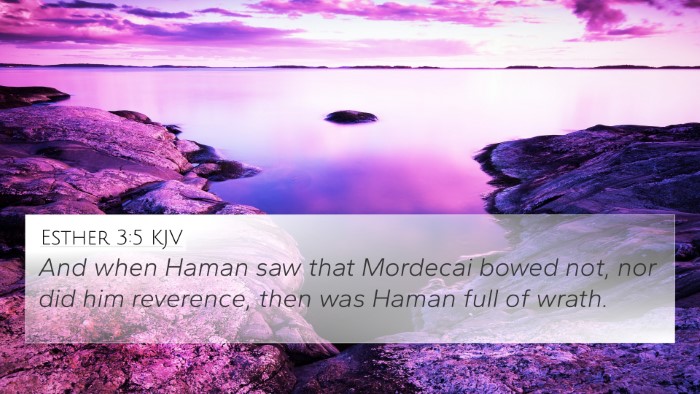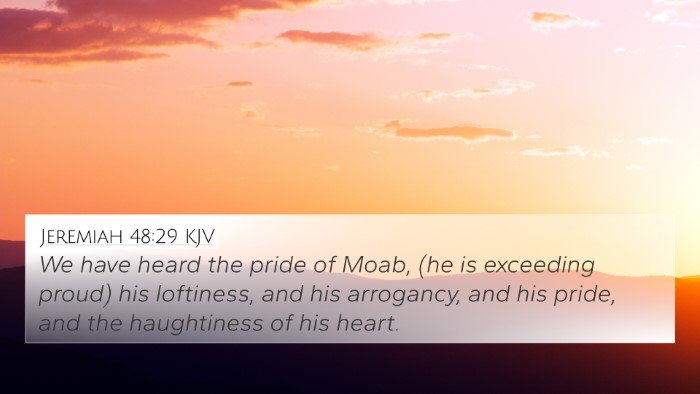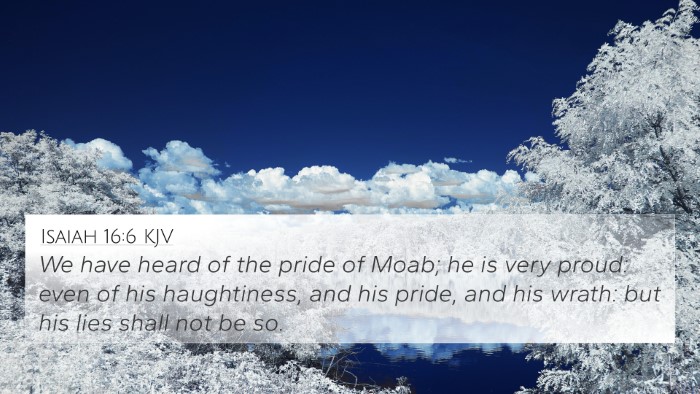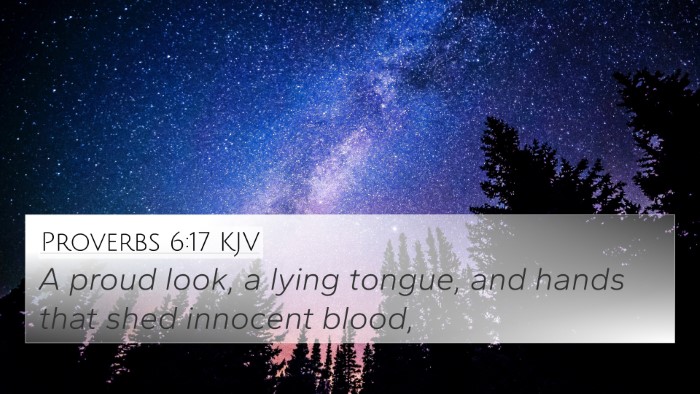Understanding Proverbs 21:24
Verse: Proverbs 21:24 states, "Proud and haughty scorner is his name, who dealeth in proud wrath."
This verse serves as a critical reflection on the attitudes and characteristics of prideful individuals, particularly those who scorn others. The choice of words in this verse is significant, showcasing the disdainful nature and consequences of pride.
Insights from Public Domain Commentaries
This verse has been examined by several scholars, and the following interpretations provide a deeper understanding:
-
Matthew Henry:
Henry highlights that this verse conveys a warning against the arrogance and contempt exhibited by the proud. He emphasizes that pride leads to strife and ultimately to ruin, both in character and relationships.
-
Adam Clarke:
Clarke explains that scorners are not merely proud but actively seek to belittle and demean others. This condemnation reflects on their character and warns about the dangers of embracing such an attitude.
-
Albert Barnes:
Barnes views this verse as an assertion of the negative results of allowing pride to dominate one's life. He posits that scorn is a direct result of a haughty spirit, and such individuals will often lead others into conflicts and disputes.
Thematic Connections
Proverbs 21:24 intrinsically connects with various biblical themes such as pride, humility, and interpersonal relationships. The verse serves as a critical junction point for exploring these themes across a broader biblical narrative.
Bible Verse Cross-References
Proverbs 21:24 can be cross-referenced with the following verses that delve into similar themes of pride and its consequences:
- Proverbs 16:18: "Pride goeth before destruction, and a haughty spirit before a fall."
- James 4:6: "But he giveth more grace. Wherefore he saith, God resisteth the proud, but giveth grace unto the humble."
- Psalms 101:5: "Whoso privily slanders his neighbor, him will I cut off: him that hath an high look and a proud heart will not I suffer."
- Proverbs 8:13: "The fear of the Lord is to hate evil: pride, and arrogance, and the evil way, and the froward mouth, do I hate."
- Proverbs 29:23: "A man's pride shall bring him low: but honor shall uphold the humble in spirit."
- Proverbs 13:10: "Only by pride cometh contention: but with the well advised is wisdom."
- Isaiah 2:11: "The lofty looks of man shall be humbled, and the haughtiness of men shall be bowed down, and the Lord alone shall be exalted in that day."
Comparative Bible Verse Analysis
The verse can be examined alongside related teachings to better appreciate the biblical perspective on pride and humility. Connections can be drawn between the Old Testament exploration of pride, and New Testament admonitions against arrogance.
Inter-Biblical Dialogue
Proverbs 21:24 opens a dialogue with both the Old and New Testament teachings regarding pride. For example:
- The teachings of Jesus regarding humility (Matthew 23:12: "And whosoever shall exalt himself shall be abased; and he that shall humble himself shall be exalted.")
- Paul's letters, particularly in Romans, emphasize the need for humility (Romans 12:3: "For I say, through the grace given unto me, to every man that is among you, not to think of himself more highly than he ought to think; but to think soberly, according as God hath dealt to every man the measure of faith.").
Conclusion
In summary, Proverbs 21:24 serves as a poignant reminder of the dangers of pride and the importance of humility. Through scriptural cross-referencing and thematic connections, we can develop a comprehensive understanding of the Bible's teachings on these critical subjects.
Tools for Bible Cross-Referencing
For those interested in exploring these themes further, utilizing a Bible concordance or a Bible cross-reference guide can be invaluable. Engaging with cross-reference Bible study methods will enrich one's understanding of how different scriptures inform and illuminate each other.
This comprehensive analysis helps uncover the profound biblical truths embedded in Proverbs 21:24 and its connections in the wider scriptural narrative.













